Vitamin B6 for Mental Health: How It Helps with Depression


Alpha Lipoic Acid 100mg + Methylcobalam...
Each soft gelatin capsule contains (Appr...
B-Complex with Vitamin C & Zinc (New for...
Ginseng Extract Powder 42.5mg, Vitami...
Each Soft Gelatin Capsule Contains: Omeg...
Pyridoxine Hcl 40mg Tablets I.P.
Riboflavin 4.5MG, Niacinamide 45MG, Thia...
Beta Carotene (10%) 2mg, Lecithin 10 mg,...
Vitamin B6 is gaining attention for its role in maintaining mental well-being. B6 for mental health is not just a nutritional concern—it's a potential tool to manage mood disorders like depression. This blog explores how vitamin B6 works in the brain, how it affects emotional balance, and why it's essential in managing depressive symptoms.
How does B6 support mental health?
Vitamin B6 helps the brain produce mood-regulating chemicals like serotonin, dopamine, and GABA. Low B6 levels reduce neurotransmitter production, leading to:
- Irritability
- Fatigue
- Mood swings
- Increased anxiety or depression
Without enough B6, the brain struggles to maintain emotional stability, which can directly impact mental health.
How does B6 help with depression symptoms?
B6 for depression works by influencing serotonin levels, commonly known as the “feel-good” hormone. It also helps in converting tryptophan into serotonin. Low serotonin is often linked to depressive states.
Benefits of B6 in managing depression may include:
- Better mood regulation
- Reduced emotional fatigue
- Improved sleep and motivation
- Balanced nervous system response
Some studies show that people with low B6 levels are more prone to developing depression, and supplementation may ease symptoms in mild to moderate cases.
Can B6 deficiency affect mental health?
Yes. A vitamin B6 deficiency can affect both the mind and body. Since B6 is essential for brain chemistry, a deficiency may lead to neurological and emotional symptoms.
Signs of B6 deficiency include:
- Depression
- Brain fog
- Low energy
- Trouble concentrating
- Anxiety
- Irritability
Certain groups—like the elderly, people with kidney disease, or those on specific medications—are more likely to develop a deficiency.
Best Supplement for Mental Health & Depression Relief
| Product Name | Key Benefits |
|---|---|
| My12 Forte Nerve Rejuvenator Capsule | Supports nerve health, improves mood, reduces fatigue and mental stress. |
| Zinseng Forte | Contains ginseng extract; helps reduce anxiety, boosts brain function and energy. |
| Vitazem Gold | Daily multivitamin support for mental clarity and energy; fights stress. |
| Zecobax Forte | Rich in antioxidants and vitamins that support brain health and reduce mental fatigue. |
| Vitazem 5G Softgel Capsule with Omega 3 | Contains Omega-3, Ginseng & Gingko Biloba for cognitive function and memory boost. |
| Vitazem Veg Tablet | General multivitamin support; helps improve energy, focus, and mood stability. |
| Zecobax Z Multivitamin Capsule | Supports nerve and immune health; contains key nutrients for mood and brain function. |
| Pyrione 40 Tablet | May support neurological balance; helpful in mental clarity and fatigue reduction. |
What causes low B6 levels in the body?
Several factors can lead to a drop in B6 levels:
- Poor diet (low in fruits, vegetables, or whole grains)
- Chronic stress, which depletes nutrients faster
- Certain medications (e.g., birth control pills, anti-TB drugs)
- Alcoholism, which affects nutrient absorption
- Health conditions like kidney disease or malabsorption disorders
When the body doesn't get or absorb enough B6, it affects the nervous system, increasing the risk of mood-related issues.
Which foods are rich in vitamin B6 for mental wellness?
To support mental health naturally, add B6-rich foods to your diet:
| Food | Vitamin B6 Source |
|---|---|
| Bananas | High in B6 and good for energy and mood |
| Spinach | Leafy green rich in B6 and other B vitamins |
| Potatoes | Excellent plant-based source of B6 |
| Salmon | Rich in B6 and omega-3s for brain health |
| Chicken | Lean protein source high in B6 |
| Tuna | Packed with B6 and brain-boosting nutrients |
| Whole grains | Help maintain steady B6 levels |
| Fortified cereals | Convenient source of B6 and other nutrients |
| Chickpeas | Great plant-based source of B6 |
How much B6 is needed to support mental health?
Adults need about 1.3–1.7 mg of B6 daily:
- 1.3 to 1.7 mg per day (varies slightly by age and gender)
However, for individuals dealing with stress or mild depression, doctors may recommend higher doses—usually up to 50–100 mg per day—under medical supervision. It’s important not to exceed safe limits, as high doses over time can lead to nerve damage.
Is B6 more effective alone or with other vitamins?
B6 works best with other B vitamins, especially:
- Vitamin B12 – Supports nerve health and mood stability
- Folate (Vitamin B9) – Helps regulate homocysteine, a compound linked to depression
- Vitamin B1 & B2 – Boost brain energy and focus
Together, these B vitamins form a strong foundation for mental clarity, emotional stability, and stress resilience.
Frequently Asked Questions
Q. Can B6 help with anxiety and depression?
A. Yes. B6 helps regulate GABA, a calming neurotransmitter that can reduce anxiety and promote relaxation.
Q. How quickly can B6 improve mood symptoms?
A. It may take a few days to several weeks to feel improvements, depending on the deficiency level and overall health.
Q. Is it safe to take B6 daily for mental wellness?
A. Yes, within recommended limits. Always consult a healthcare provider before using high doses regularly.
Q. Can stress lower my B6 levels?
A. Absolutely. Chronic stress depletes B6 faster, making supplementation or dietary focus more important.
Q. Are teens or elderly people more prone to B6 deficiency?
A. Yes. Teenagers with poor diets and elderly individuals with absorption issues are at higher risk.
Conclusion
Vitamin B6 for mental health plays a vital role in managing mood, stress, and emotional stability. Its impact on neurotransmitters like serotonin and dopamine makes it a key nutrient in the fight against depression.
Whether through diet or supplementation (under guidance), maintaining healthy B6 levels can support a more balanced mind, better energy, and greater emotional control. If you’re feeling consistently low, tired, or anxious, it may be time to evaluate your B6 intake.

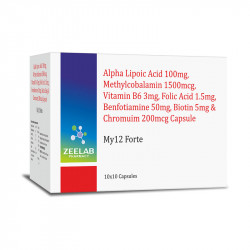

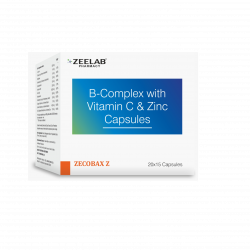
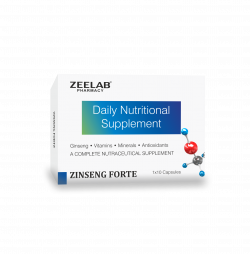
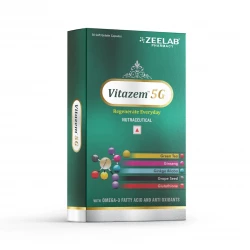
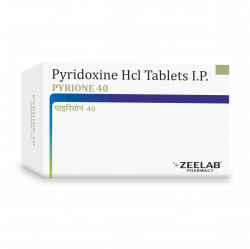
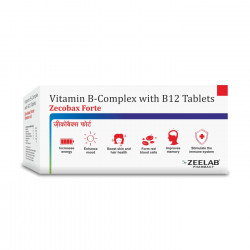







 Added!
Added!